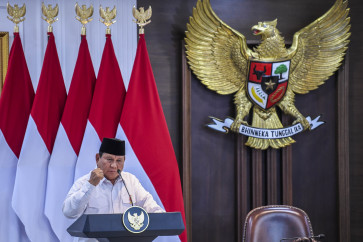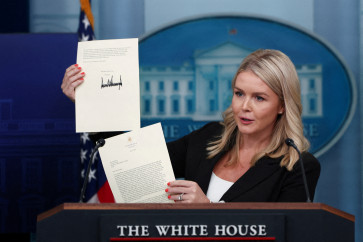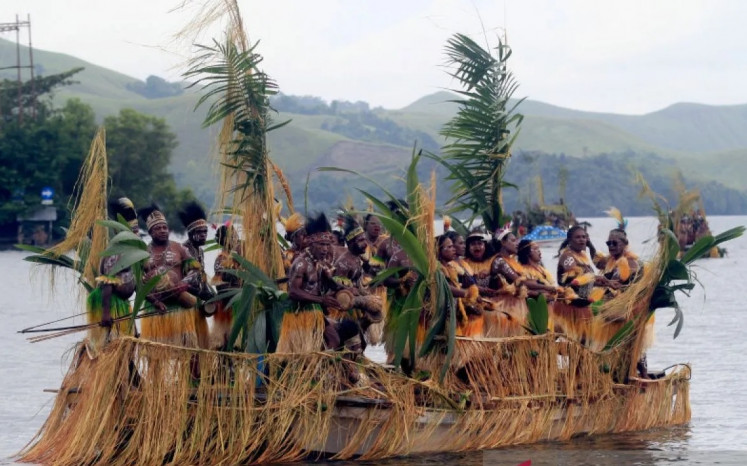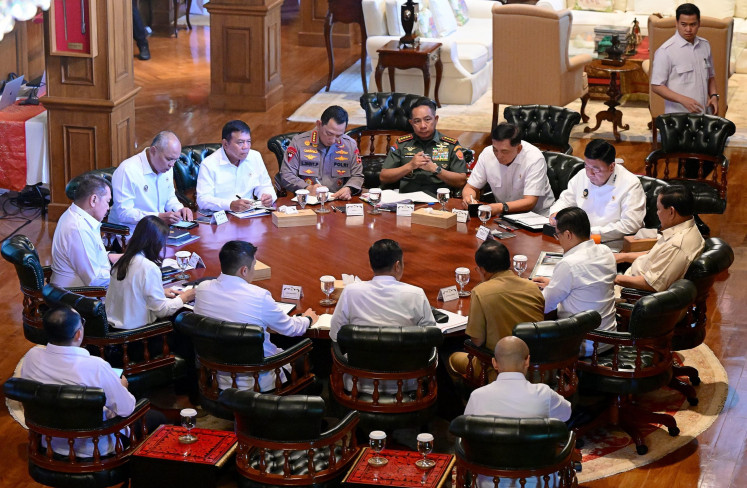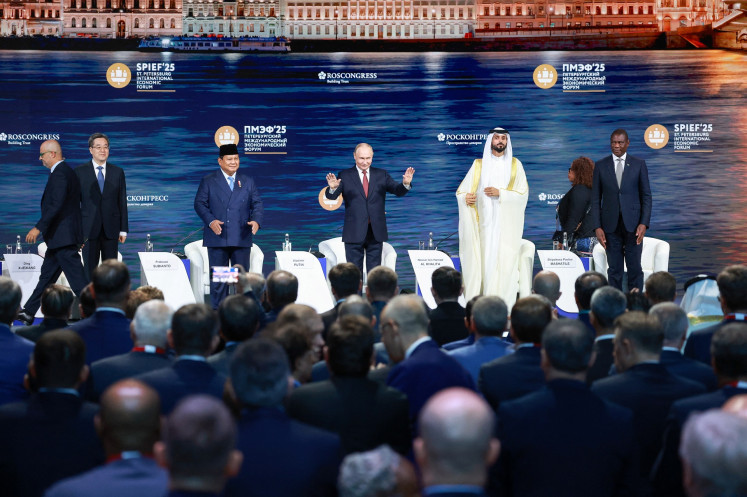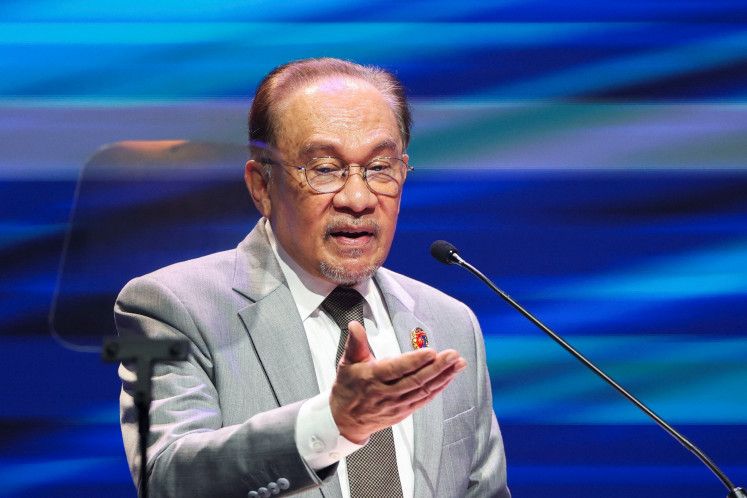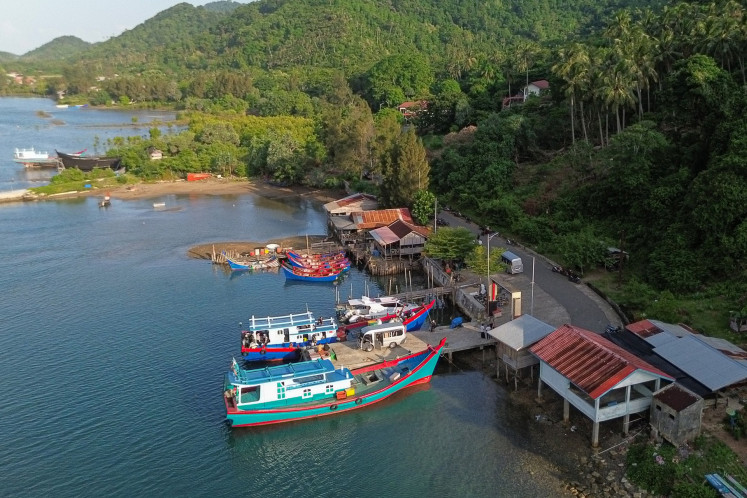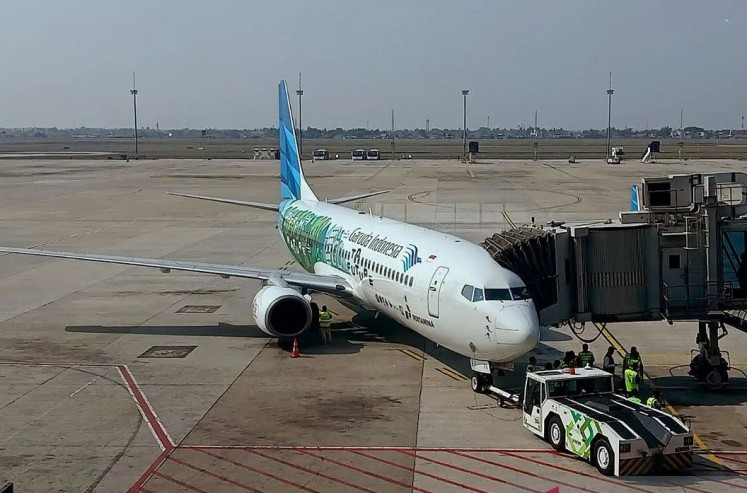Popular Reads
Top Results
Can't find what you're looking for?
View all search resultsPopular Reads
Top Results
Can't find what you're looking for?
View all search resultsListen to Papuans first
What came out of the meeting, be it construction of more infrastructure or more jobs for native Papuans, is definitely important, but what matters most is the dialogue itself.
Change text size
Gift Premium Articles
to Anyone
P
apua has a special place in President Joko “Jokowi” Widodo’s heart. Throughout his first four years in office, he visited Papua eight times, spending much of his time there at the now-famous Mama-Mama Market in Jayapura.
Jokowi has also made good on his promise to build more infrastructure in the country’s easternmost region. Some of the signature infrastructure projects currently underway include the trans-Papua road project and the 732-meter-long Holtekamp Bridge connecting Jayapura and nearby Muara Tami district. And despite the risk of incurring losses for state-owned oil and gas company Pertamina, the President has ordered a policy to allow Papuans to enjoy the same fuel prices as consumers on Java.
Politically, Jokowi has reaped benefit from his good rapport with Papuans. In this year’s presidential election, he and his running mate Muslim cleric Ma’ruf Amin secured more than 90 percent of the vote in Papua.
Given this amiable relationship, many were baffled when President Jokowi only gave a muted reaction to days of rioting in Papua’s major cities. In his first statement in response to the situation in Papua in late August he urged people to “forgive each other”, when it was obvious that those who should apologize were those who hurled racist insults at Papuan students in Surabaya. Also, while cities in Papua were burning, President Jokowi spent his time laughing and relaxing at a comedy performance in Purworejo in late August.
It was not until Aug. 30 that Jokowi came to terms with the gravity of the situation in Papua. He convened a snap Cabinet meeting only two days after a street protest by Papuans in Jakarta reached the doorstep of the Presidential Palace, during which protesters managed to fly the Bintang Kejora (Morning Star) flag under the watchful eye of police personnel.
Pictures of the outlawed flag flying high in front of the State Palace printed on the front page of national and international newspapers certainly did not look good from Indonesia’s public relations perspective and since early September, key personnel in Jokowi’s administration went on a charm offensive and began making efforts to reach out to Papuans for a dialogue — on top of sending more troops and paramilitary police.
Tuesday’s meeting between President Jokowi and 61 tribal leaders from Papua and West Papua was long overdue. In fact, the forum should have been the first order of the day shortly after unrest broke out in the region. During the dialogue, Jokowi made fresh pledges to these tribal leaders, including constructing a presidential palace in Papua and ordering state-owned enterprises to hire 1,000 Papuan college graduates.
What came out of the meeting, be it construction of more infrastructure or more jobs for native Papuans, is definitely important, but what matters most is the dialogue itself. If after all the roads and bridges Papuans continue to rage against Jakarta, probably the central government has been doing it wrong. And talking directly to Papuans could be the key to doing it right.


